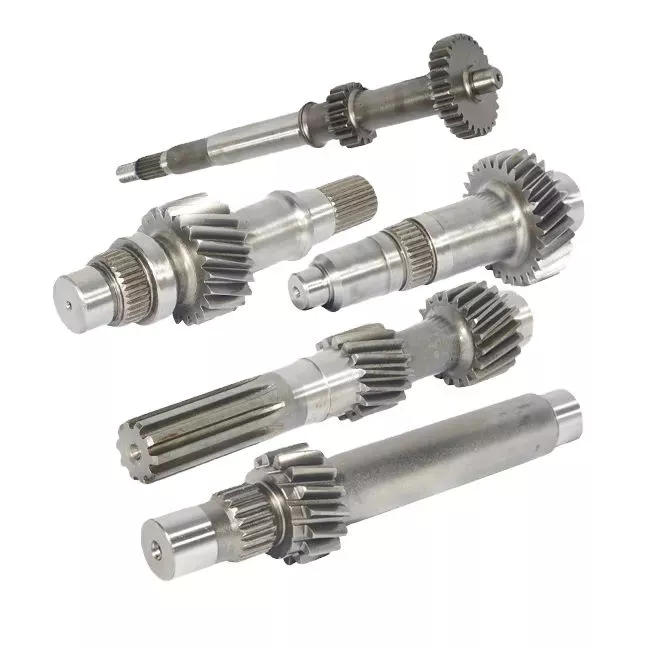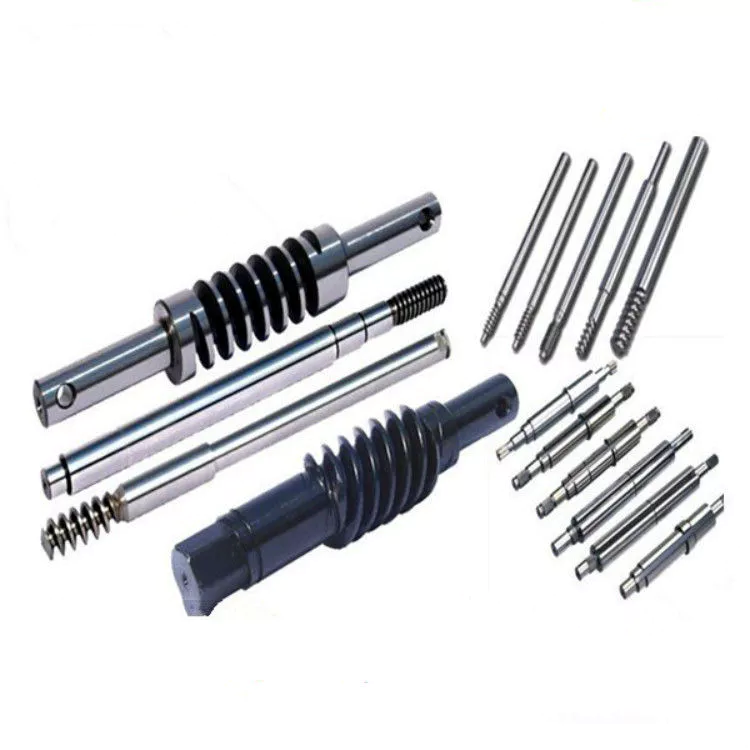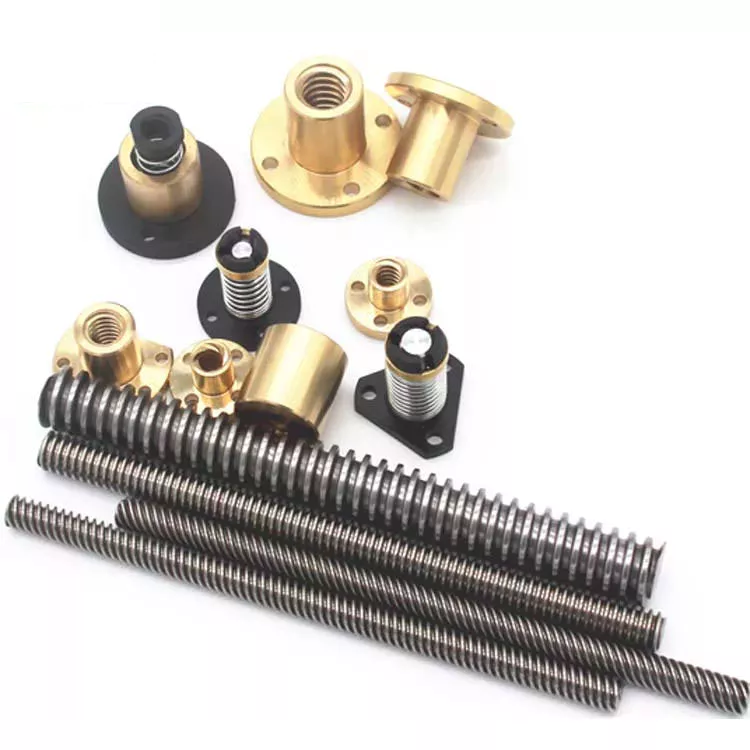Situation: New
Warranty: 6 Months
Relevant Industries: Producing Plant, Farms, Building functions
Excess weight (KG): 1 KG
Showroom Place: None
Video outgoing-inspection: Presented
Equipment Take a look at Report: Provided
Advertising and marketing Kind: Regular Product
Type: Wheel Rim
Application: apron wheel
Packaging Specifics: Standard packing for magnetic pulley
Port: HangZhou or other China major ports
CZPT Custom-made agriculture machinery gear for revenue,clay sand casting agriculture machinery areas
| Description | OEM personalized agricultural precision casting tractor spare elements |
| Variety | casting tractor |
| Application | agricultural |
| Processing | Water glass casting |
| Substance | Cast metal |
| Bodyweight Ranges | |
| Tolernace | Managed by ISO 8006 CT4-6 |
| Style Assist | Pro-E, UG,SolidWorks,AutoCad, PDF |
| Good quality Handle | Content, Dimension,Overall performance,inside of defects,Stability test |
| Standard | ASTM,DIN,JIS,ISO,GB requirements |
Goods present:
Declaration:
Goods revealed herein are made to the demands of distinct buyers and are illustrative of the kinds of producing abilities accessible within CZPT team of organizations.
Our policy is that none of these items will be marketed to third functions with no written consent of the clients to whom the tooling, style and specifications belong.
Firm InformationHangZhou New CZPT Casting and Forging Company is the revenue company of HangZhou CZPT Team of Organizations. Characteristics of New CZPT just summarized as under:
one. Reliable supplier of metal, iron & non-ferrous factors Expert Equipment Speed Reducer Gearbox Manufacturing Conform to API 11E
two. In depth documented quality system in spot.
3. Castings, forgings, stampings, machining, welding & fabrication services.
4. 9 connected factories, more than fifty joint-undertaking sub-contractors.
5. twenty five+ many years of production encounters, 10+ a long time of exporting knowledge
6. a hundred% of products offered to overseas consumers.
seven. 50% of buyer foundation is forturne 500 businesses.
Densen Group Architecture:
Processing assistanceCasting Services:
Casting is a producing procedure in which a liquid content is usually poured into a mildew, which consists of a hollow cavity of the desired shape, and then permitted to solidify.
New CZPT gives a number of expense casting, sand casting, everlasting casting, die casting, reduced pressure casting, ESR casting, lost foam casting, and so forth. Content can be taken care of consist of steel, iron, non-ferrous. Solitary element weight assortment is from .01Kg to a hundred and fifty tons individually.
Forging Services:
Forging is a producing method involving the shaping of metal utilizing localized compressive forces. New CZPT delivers open up die forging, China Supplier CF1125 CF1130 one cylinder 4-Stroke water cooled Diesel Motor for sale shut die forging and ring forging services. Content can be metal, iron and non-ferrous. Materials can be dealt with incorporate steel, iron, non-ferrous. Single component excess weight range is from .1Kg to 50,000Kgs.
Stamping Services:
Stamping (also identified as punching) is the method of placing flat sheet steel in both blank or coil sort into a stamping press the place a instrument and die surface area varieties the steel into a internet condition.
New Densen-XBL has far more than 60 sets stamping equipments, is the made supplier for several popular bands automotive businesses, has the complete ability to provide complete procedures from blanking, stamping, welding, to electrostatic spraying for worldwide consumers.
Welding & Fabrication Services:
Welding Frabrication is the fabrication procedure of steel structures by reducing, bending, then assembling the factors collectively through welding
New CZPT gives manual arc welding ,laser welding and robotic welding etc. UT, MPT,RT,PT all are available utilised for inspection, WPS &PQR (Welding Approach Specification& Higher High quality 1400 Rpm X B Sequence Cycloidal Velocity Reducer Mixer Gearbox with motor Method Qualification Information) prior to manufacturing is available underneath clients’ need.
Machining Services:
Machining is any of a variety of procedures in which a piece of raw material is cut into a wanted closing form and measurement by a controlled materials-elimination method.
New Densen-XBL has far more than 60 sets precision equipment incl. CNC heart, unexciting, milling, lathing, and so forth., and much more than three hundred inspection devices incl. 3 sets CMM with grade μm. Recurring tolerance can be preserved as .02mm. In the meantime awarded by certificates ISO9001-2008 ISO/TS16949. New Densen-XBL specialized in high precise machining for little-center-huge metallic parts.
third Celebration Inspection
third Get together Inspection:
New CZPT labored as third party inspection centre in addition to its sister factories or sub-contractors’ self inspection, Provides process inspection, random inspection and before delivedry inspection services for content, mechanical, inside of defects, dimentional, force, load, equilibrium, area remedy, China offer agricultural equipment components excavator track idler rollerfor sale visual inspection and examination. Weekly task adhere to-up report together with pictures and video clips, total quality inspection documentation obtainable.
New CZPT also designed as 3rd celebration inspection agent for numerous buyers when their merchandise manufactured by other suppliers.
Get in touch with us
Screw Sizes and Their Uses
Screws have different sizes and features. This article will discuss screw sizes and their uses. There are two main types: right-handed and left-handed screw shafts. Each screw features a point that drills into the object. Flat tipped screws, on the other hand, need a pre-drilled hole. These screw sizes are determined by the major and minor diameters. To determine which size of screw you need, measure the diameter of the hole and the screw bolt’s thread depth.
The major diameter of a screw shaft
The major diameter of a screw shaft is the distance from the outer edge of the thread on one side to the tip of the other. The minor diameter is the inner smooth part of the screw shaft. The major diameter of a screw is typically between two and sixteen inches. A screw with a pointy tip has a smaller major diameter than one without. In addition, a screw with a larger major diameter will have a wider head and drive.
The thread of a screw is usually characterized by its pitch and angle of engagement. The pitch is the angle formed by the helix of a thread, while the crest forms the surface of the thread corresponding to the major diameter of the screw. The pitch angle is the angle between the gear axis and the pitch surface. Screws without self-locking threads have multiple starts, or helical threads.
The pitch is a crucial component of a screw’s threading system. Pitch is the distance from a given thread point to the corresponding point of the next thread on the same shaft. The pitch line is one element of pitch diameter. The pitch line, or lead, is a crucial dimension for the thread of a screw, as it controls the amount of thread that will advance during a single turn.
The pitch diameter of a screw shaft
When choosing the appropriate screw, it is important to know its pitch diameter and pitch line. The pitch line designates the distance between adjacent thread sides. The pitch diameter is also known as the mean area of the screw shaft. Both of these dimensions are important when choosing the correct screw. A screw with a pitch of 1/8 will have a mechanical advantage of 6.3. For more information, consult an application engineer at Roton.
The pitch diameter of a screw shaft is measured as the distance between the crest and the root of the thread. Threads that are too long or too short will not fit together in an assembly. To measure pitch, use a measuring tool with a metric scale. If the pitch is too small, it will cause the screw to loosen or get stuck. Increasing the pitch will prevent this problem. As a result, screw diameter is critical.
The pitch diameter of a screw shaft is measured from the crest of one thread to the corresponding point on the next thread. Measurement is made from one thread to another, which is then measured using the pitch. Alternatively, the pitch diameter can be approximated by averaging the major and minor diameters. In most cases, the pitch diameter of a screw shaft is equal to the difference between the two.
The thread depth of a screw shaft
Often referred to as the major diameter, the thread depth is the outermost diameter of the screw. To measure the thread depth of a screw, use a steel rule, micrometer, or caliper. In general, the first number in the thread designation indicates the major diameter of the thread. If a section of the screw is worn, the thread depth will be smaller, and vice versa. Therefore, it is good practice to measure the section of the screw that receives the least amount of use.
In screw manufacturing, the thread depth is measured from the crest of the screw to the root. The pitch diameter is halfway between the major and minor diameters. The lead diameter represents the amount of linear distance traveled in one revolution. As the lead increases, the load capacity decreases. This measurement is primarily used in the construction of screws. However, it should not be used for precision machines. The thread depth of a screw shaft is essential for achieving accurate screw installation.
To measure the thread depth of a screw shaft, the manufacturer must first determine how much material the thread is exposed to. If the thread is exposed to side loads, it can cause the nut to wedge. Because the nut will be side loaded, its thread flanks will contact the nut. The less clearance between the nut and the screw, the lower the clearance between the nut and the screw. However, if the thread is centralized, there is no risk of the nut wedgeing.
The lead of a screw shaft
Pitch and lead are two measurements of a screw’s linear distance per turn. They’re often used interchangeably, but their definitions are not the same. The difference between them lies in the axial distance between adjacent threads. For single-start screws, the pitch is equal to the lead, while the lead of a multi-start screw is greater than the pitch. This difference is often referred to as backlash.
There are two ways to calculate the pitch and lead of a screw. For single-start screws, the lead and pitch are equal. Multiple-start screws, on the other hand, have multiple starts. The pitch of a multiple-start screw is the same as its lead, but with two or more threads running the length of the screw shaft. A square-thread screw is a better choice in applications requiring high load-bearing capacity and minimal friction losses.
The PV curve defines the safe operating limits of lead screw assemblies. It describes the inverse relationship between contact surface pressure and sliding velocity. As the load increases, the lead screw assembly must slow down in order to prevent irreversible damage from frictional heat. Furthermore, a lead screw assembly with a polymer nut must reduce rpm as the load increases. The more speed, the lower the load capacity. But, the PV factor must be below the maximum allowed value of the material used to make the screw shaft.
The thread angle of a screw shaft
The angle between the axes of a thread and the helix of a thread is called the thread angle. A unified thread has a 60-degree angle in all directions. Screws can have either a tapped hole or a captive screw. The screw pitch is measured in millimeters (mm) and is usually equal to the screw major diameter. In most cases, the thread angle will be equal to 60-degrees.
Screws with different angles have various degrees of thread. Originally, this was a problem because of the inconsistency in the threading. However, Sellers’s thread was easier to manufacture and was soon adopted as a standard throughout the United States. The United States government began to adopt this thread standard in the mid-1800s, and several influential corporations in the railroad industry endorsed it. The resulting standard is called the United States Standard thread, and it became part of the ASA’s Vol. 1 publication.
There are two types of screw threads: coarse and fine. The latter is easier to tighten and achieves tension at lower torques. On the other hand, the coarse thread is deeper than the fine one, making it easier to apply torque to the screw. The thread angle of a screw shaft will vary from bolt to bolt, but they will both fit in the same screw. This makes it easier to select the correct screw.
The tapped hole (or nut) into which the screw fits
A screw can be re-threaded without having to replace it altogether. The process is different than that of a standard bolt, because it requires threading and tapping. The size of a screw is typically specified by its major and minor diameters, which is the inside distance between threads. The thread pitch, which is the distance between each thread, is also specified. Thread pitch is often expressed in threads per inch.
Screws and bolts have different thread pitches. A coarse thread has fewer threads per inch and a longer distance between threads. It is therefore larger in diameter and longer than the material it is screwed into. A coarse thread is often designated with an “A” or “B” letter. The latter is generally used in smaller-scale metalworking applications. The class of threading is called a “threaded hole” and is designated by a letter.
A tapped hole is often a complication. There is a wide range of variations between the sizes of threaded holes and nut threads, so the tapped hole is a critical dimension in many applications. However, even if you choose a threaded screw that meets the requisite tolerance, there may be a mismatch in the thread pitch. This can prevent the screw from freely rotating.

